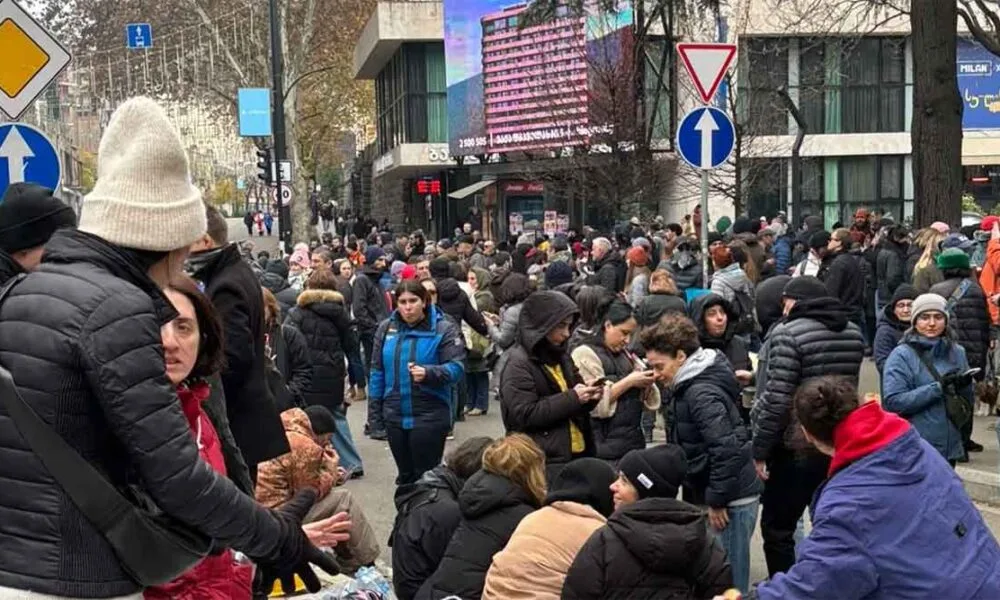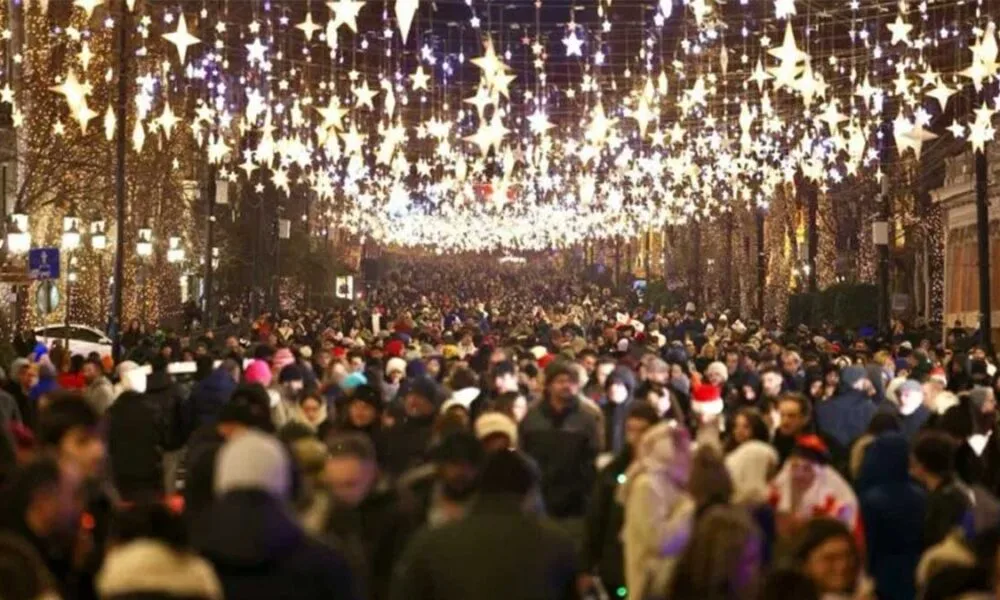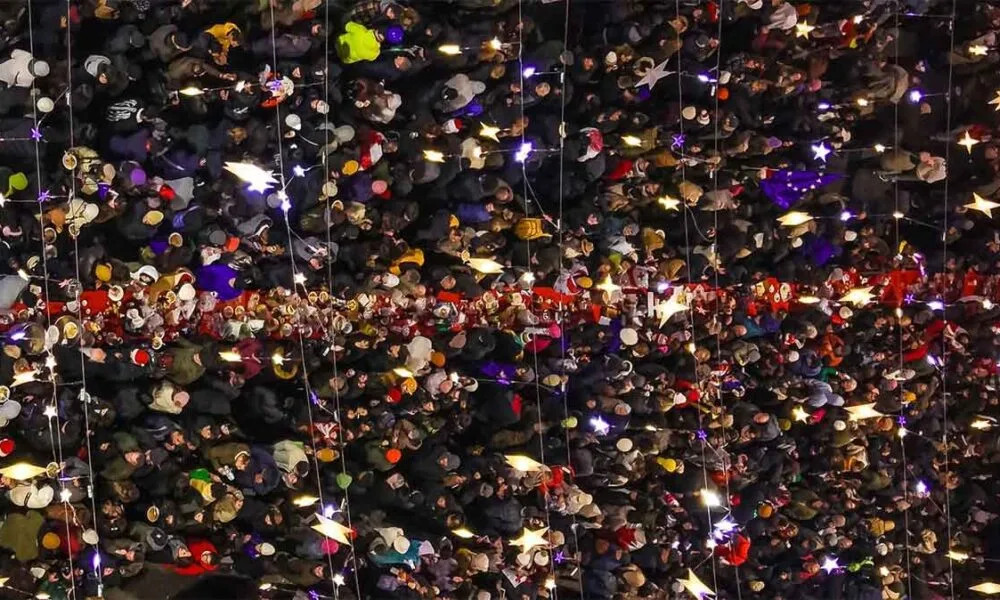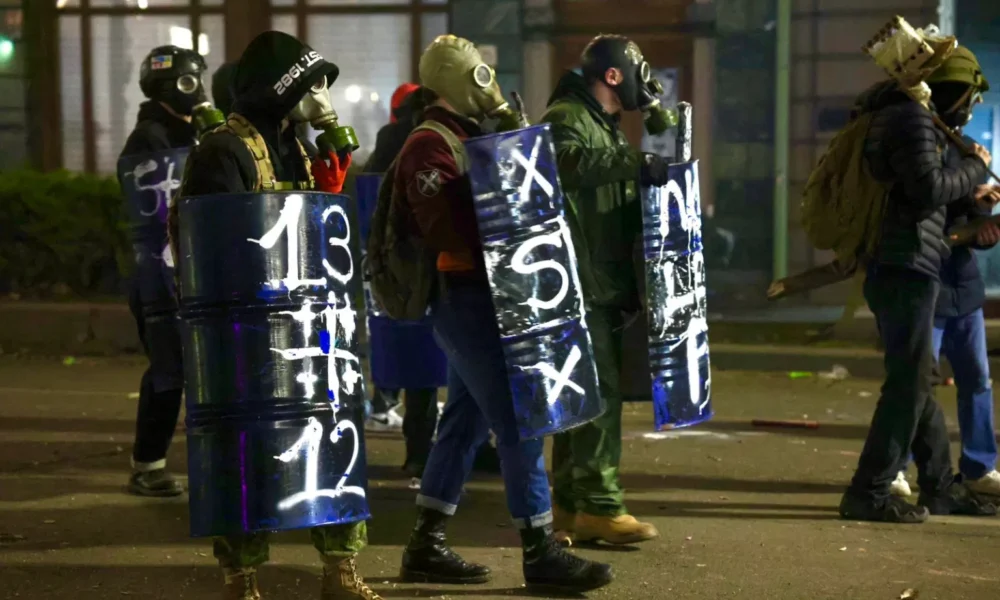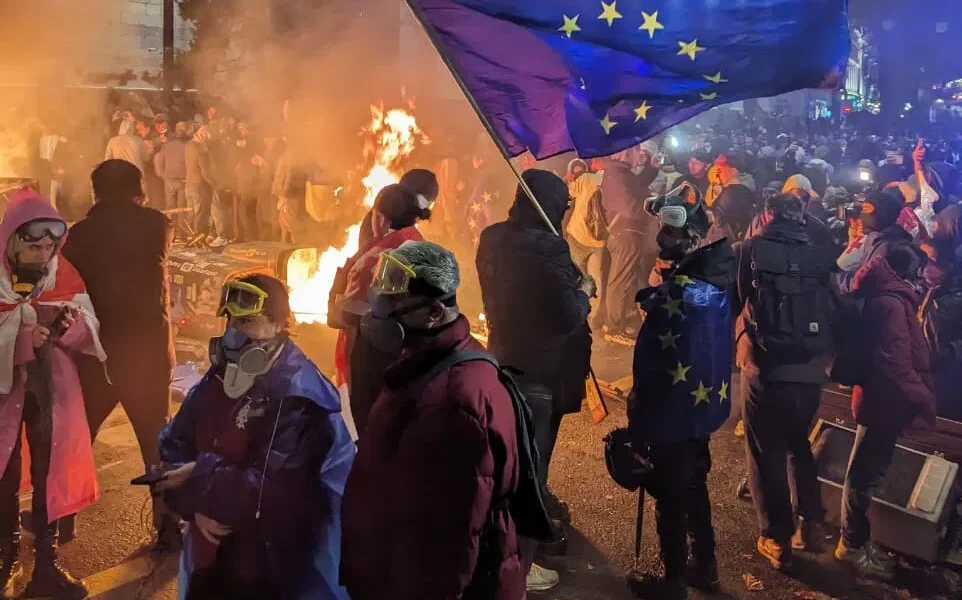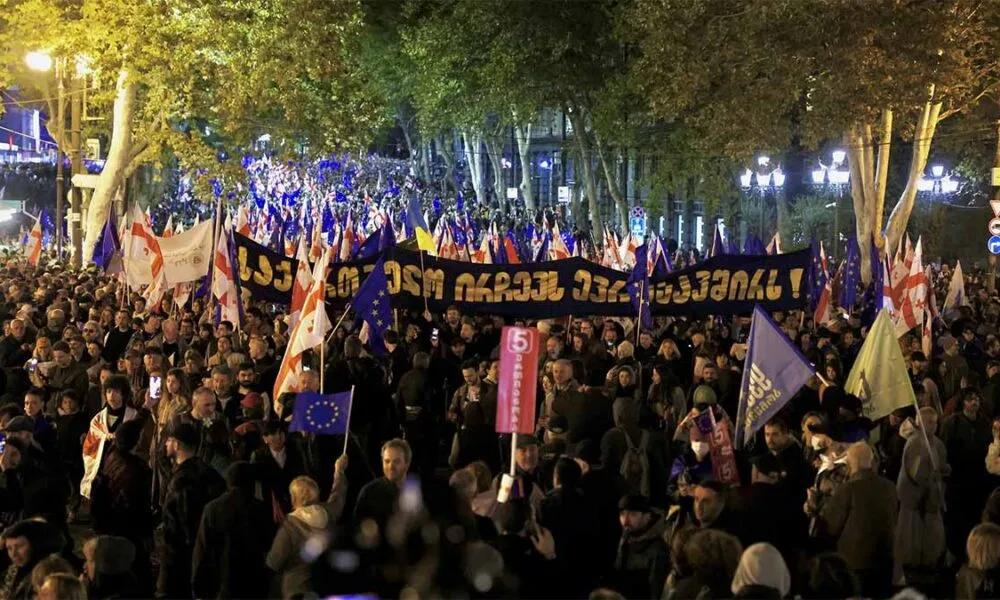Georgian Dream
Protests in Georgia persist. Stay updated on the events of February 13-15, including key demands and developments, on Azat.tv.

Protests in Georgia intensified between January 20-24, 2024, driven by public dissatisfaction with the government’s policies and actions. Demonstrations across cities like Tbilisi, Batumi, and Zugdidi focused on key issues: the release of detained activists, opposition to the controversial “Foreign Agents” Law, and demands for free and fair elections. The case of journalist Mzia Amaghlobeli…

The new year has not brought respite to Georgia’s political crisis. From January 1-3, 2025, protests continued with renewed force, demonstrating the unwavering resolve of Georgian citizens against the ruling Georgian Dream (GD) party. What began as demonstrations against the suspension of EU accession talks in late 2024 has evolved into a broader movement demanding…

As 2024 draws to a close, Georgia finds itself gripped by a deepening political crisis, marked by sustained mass protests and a series of governmental actions that have further inflamed public discontent. The ongoing 33-day wave of demonstrations, with planned events continuing through December 30 and 31, underscores the widespread public opposition to the ruling…

December 29 marked a day of escalating tensions in Georgia as political divisions, protests, and questions of legitimacy engulfed the country. At the heart of the unrest was the inauguration of Mikheil Kavelashvili, the Georgian Dream party’s chosen candidate, as the new president, sparking widespread protests and a defiant address from outgoing President Salome Zurabishvili.…

We present to you an update on the situation in Georgia as of December 28: Georgia stands at a crossroads as citizens rally across the country to oppose what they perceive as a betrayal of the nation’s democratic aspirations. On a rainy December day, thousands of Georgians took to the streets to form a symbolic…

On December 21, thousands of Georgians marched in Tbilisi, culminating in a massive rally on Rustaveli Avenue. Participants from various regions and university students, including those from the Free University and Agrarian University, brought vibrant energy to the demonstrations. A highlight of the day was the performance of the Khorumi military dance by hundreds of…

Georgia witnessed a week of escalating political unrest from December 15 to 19, marked by mass protests, international responses, and increasing demands for justice, transparency, and European integration. Key events from this tumultuous week demonstrate the intensity and complexity of the situation in the country. Protests intensified across Georgia, with marches converging on Rustaveli Avenue…

On December 3, Georgia became the stage for escalating tensions as citizens continued their fight for democracy and European integration. A series of key events unfolded throughout the day, reflecting the intensity of the ongoing protests and their impact on both the nation and the international community. The evening saw heightened violence as special forces…

Tensions in Georgia have reached new heights as protests across Tbilisi and other cities intensify following the government’s decision to halt the EU accession process. Demonstrators have taken to the streets, demanding accountability and reaffirmation of Georgia’s European trajectory. The protests began on November 28 after Georgian Dream (GD) party leader Irakli Kobakhidze announced the…

Polish President Andrzej Duda has called on the Georgian government to reconsider its decision to suspend EU accession negotiations, a move that has sparked widespread protests and raised concerns about Georgia’s political future. On Saturday, President Duda held a phone conversation with President of Georgia Salome Zourabishvili to discuss the situation in the country following…

The third consecutive day of protests on Rustaveli Avenue in Tbilisi saw an escalation of tensions as demonstrators clashed with authorities, expressing outrage over the Georgian Dream (GD) party’s decision to delay EU accession talks until 2028. The protests, sparked by this foreign policy U-turn, have drawn criticism from both international observers and local institutions,…

The Georgian Dream (GD) party’s decision to suspend EU accession negotiations until 2028 has ignited a political storm across Georgia. Announced by Prime Minister Irakli Kobakhidze, the decision has led to widespread protests, accusations of democratic backsliding, and condemnation from local and international voices. Critics argue that the move undermines Georgia’s constitutional commitment to European…

The Georgian Dream (GD) government’s announcement to suspend EU accession negotiations until 2028 has ignited widespread protests, opposition unity, and international backlash. This decision, framed by Prime Minister Irakli Kobakhidze as a move for Georgia to “join the EU on its own terms,” has been labeled as a significant setback to Georgia’s European aspirations, threatening…

Tensions continue to escalate in Georgia’s political landscape following the parliamentary elections on October 26, 2024. Three opposition coalitions—Coalition for Change (11.03%, 19 mandates), United National Movement (10.17%, 16 mandates), and Strong Georgia Alliance (8.81%, 14 mandates)—have rejected the results and declared a boycott, refusing to take up their parliamentary mandates. The Georgian Central Election…


